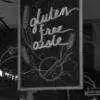-
Welcome to Celiac.com!
You have found your celiac tribe! Join us and ask questions in our forum, share your story, and connect with others.
-
Celiac.com Sponsor (A1):
Celiac.com Sponsor (A1-M):
-
Get Celiac.com Updates:Support Our Content
Bloating!
-
Get Celiac.com Updates:Support Celiac.com:
-
Celiac.com Sponsor (A17):
Celiac.com Sponsor (A17):
Celiac.com Sponsors (A17-M):
-
Recent Activity
-
- suek54 replied to suek54's topic in Dermatitis Herpetiformis5
Awaiting dermatitis herpetiformis confirmation following biopsy
Thank you all for your advice and the dermatitis herpetiformis article. The latter made me realise I had stopped taking my antihistamine, which I will restart today. The Dapsone has cleared the rash entirely but I still get quite a bit itching, absolutely nothing to see though. I know its notoriously hard to clear and its still relatively early days for me... -
- trents replied to catnapt's topic in Celiac Disease Pre-Diagnosis, Testing & Symptoms3
how much gluten do I need to eat before blood tests?
So, essentially all of the nutrition in the food we eat is absorbed through the villous lining of the small bowel. This is the section of the intestinal track that is damaged by celiac disease. This villous lining is composed of billions of finger-like projections that create a huge amount of surface area for absorbing nutrients. For the celiac person, when... -
- catnapt replied to catnapt's topic in Celiac Disease Pre-Diagnosis, Testing & Symptoms3
how much gluten do I need to eat before blood tests?
thank you so much for your detailed and extremely helpful reply!! I can say with absolute certainty that the less gluten containing products I've eaten over the past several years, the better I've felt. I wasn't avoiding gluten, I was avoiding refined grains (and most processed foods) as well as anything that made me feel bad when I ate it. It's the... -
- trents replied to catnapt's topic in Celiac Disease Pre-Diagnosis, Testing & Symptoms3
how much gluten do I need to eat before blood tests?
Welcome, @catnapt! The most recent guidelines are the daily consumption of a minimum of 10g of gluten (about the amount found in 4-6 slices of wheat bread) for a minimum of two weeks. But if possible stretching that out even more would enhance the chances of getting valid test results. These guidelines are for those who have been eating gluten free for... -
- catnapt posted a topic in Celiac Disease Pre-Diagnosis, Testing & Symptoms3
how much gluten do I need to eat before blood tests?
after several years of issues with a para-gland issue, my endo has decided it's a good idea for me to be tested for celiac disease. I am 70 yrs old and stunned to learn that you can get celiac this late in life. I have just gradually stopped eating most foods that contain gluten over the past several years- they just make me feel ill- although I...
-




Recommended Posts
Archived
This topic is now archived and is closed to further replies.